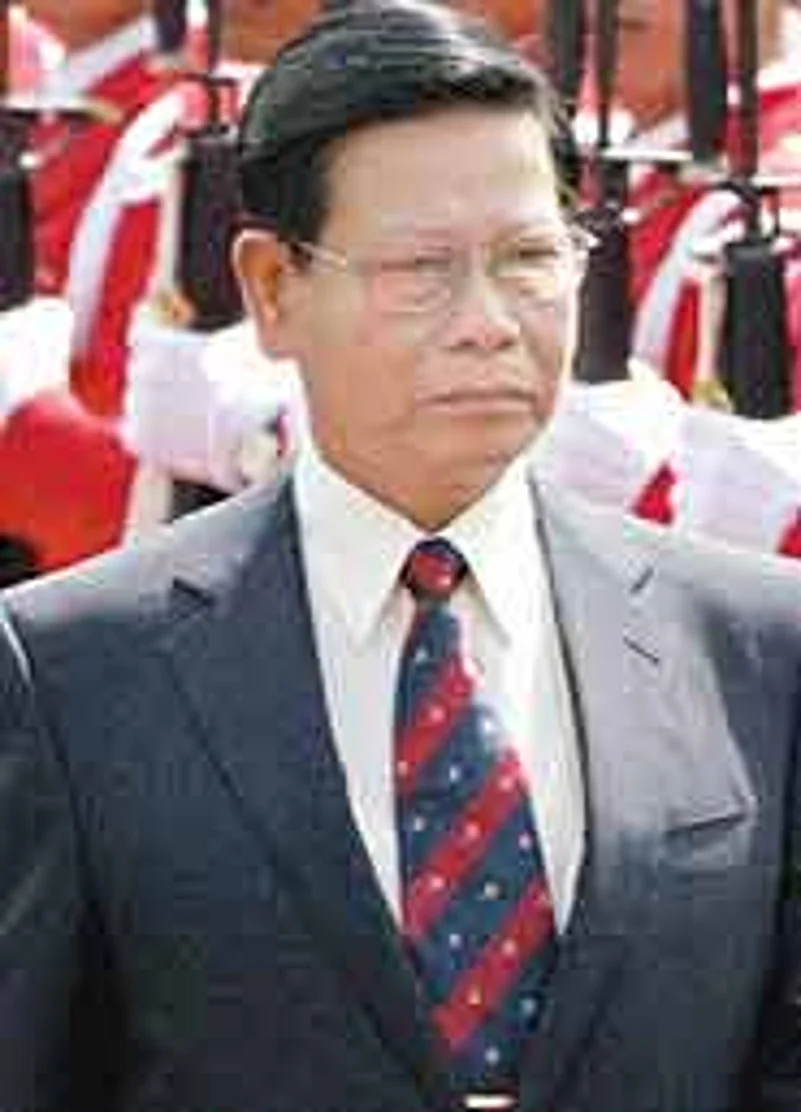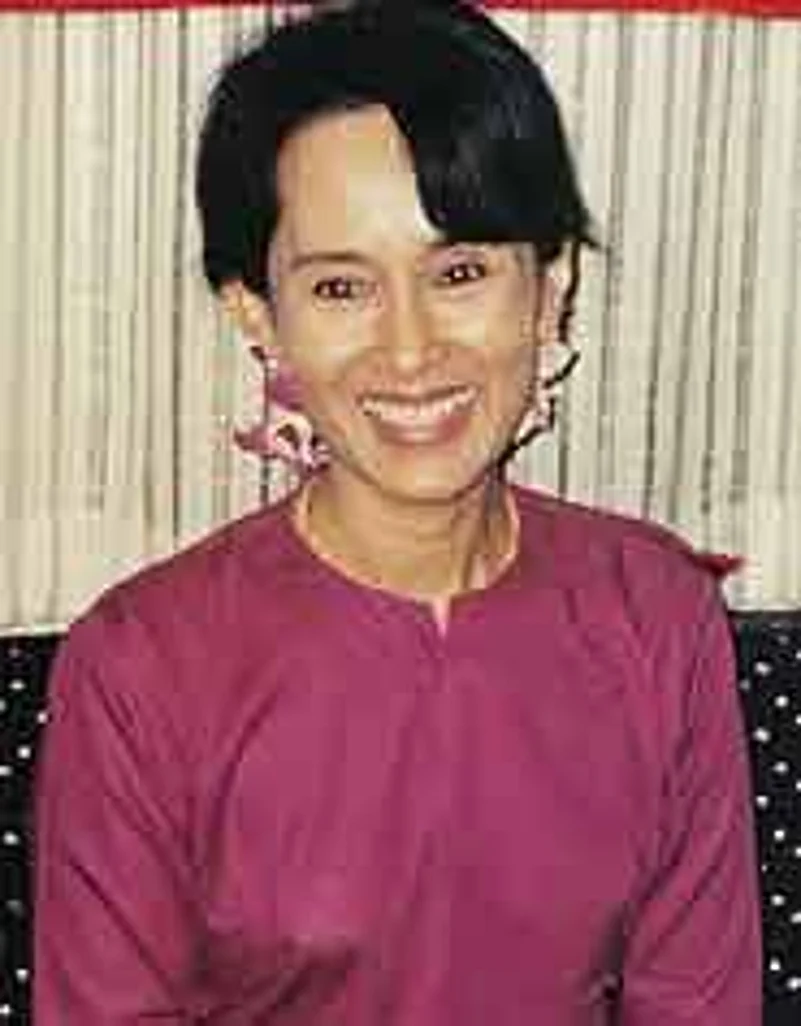The inscrutable Than sprang a surprise a week before he flew down to India. He arrested the pragmatic Khin, abolished the National Intelligence Bureau that the PM headed, and named Lt Gen Soe Win as his successor. The purge cast a shadow over Than’s visit to New Delhi; even Indian officials in the region seemed embarrassed at the political twist in Myanmar. Than, however, insisted on visiting India, conveying unmistakably what his diplomatic signalling was all about.
The change should please India. As a senior military official based in New Delhi said, "We know Maung Aye well." Gen Maung is effectively the second most powerful person in the State Peace Development Council (SPDC), the apex body of generals which runs the country. And now they claim to know the new PM well: Lt Gen Soe Win had been in-charge of the India-Myanmar border. The strengthening of army hardliners, diplomats consequently believe, must favour New Delhi.
For long, Beijing has seen Gen Khin as its man. It tried to bolster his position as prime minister through mega business deals and soft loans. Says a Japanese government official, "China has constantly tried to endorse Khin and strengthen his position within the regime by providing financial and technical assistance."

No wonder, Khin’s dismissal has been perceived to almost certainly signal a shift in Myanmar’s foreign policy. Both Than and Maung are believed to have become cautious about China’s growing influence, especially economic, in Myanmar. Most here believe Than’s visit to New Delhi is intended to underline Myanmar’s interest in fostering ties with India and developing a balanced approach to relations with neighbours. Explains a Thai military intelligence official, "Yangon’s generals feel Myanmar is over-dependent on China and want to balance that with stronger ties with India." (Myanmar’s strategic plans have three important coordinates—the countries of Southeast Asia, or ASEAN, China and India.)
Myanmar’s pro-democracy movement, however, has been highly critical of New Delhi’s policy of rapprochement with Yangon. Earlier, India was a strong supporter of Myanmar’s main pro-democracy party--the National League for Democracy (NLD)-and its detained leader Aung San Suu Kyi in the first few years after the military crushed the democratic movement in 1988. The mid-’90s, however, saw New Delhi embark on a policy of engagement with the generals, largely because of the fear that Myanmar’s isolation had pushed Yangon into Beijing’s arms.
The shift in India’s Myanmar policy was under former prime minister P.V. Narasimha Rao. But it was the National Democratic Alliance government which rigorously tried to improve relations with Yangon, and dressed this as an essential element of India’s new "Look East" policy crafted by then-prime minister Atal Behari Vajpayee. And Indian diplomats made no secret of the fact that the Look East policy was largely motivated by India’s perceived strategic need to limit China’s influence in Southeast Asia.
But India’s wooing of the generals was motivated by the even more crucial security concerns of combating cross-border terrorism, stemming the flow of illegal drugs and the potential economic and business opportunities Myanmar offered Indian traders and investors.Over the past few years, there have been several joint military operations against rebel groups which have used the hills across the border in Myanmar as a base to launch attacks in India’s northeast region. Improved relations with Myanmar is necessary for India to curb terrorism in the Northeast and perk up the local economy.
No wonder, India and Myanmar last week signed a memorandum of understanding on what is arcanely titled as "cooperation in non-traditional security issues." The mou covers terrorism, arms smuggling, money laundering, drug smuggling, et al. It provides a mechanism for exchange of information and personnel, and an annual joint review. Gen Than Shwe has assured Prime Minister Manmohan Singh that terrorist groups wouldn’t be allowed to operate from Myanmar against India.
There’s also an economic imperative behind India’s attempts to improve relations with the generals. With Myanmar sharing 1,400-km border with India’s Northeast, New Delhi has been trying to establish stronger transport links between the Northeast and Myanmar and through Myanmar to Thailand and other ASEAN countries. It would be impossible to develop BOBCOM (Bay of Bengal community comprising Bangladesh, India, Myanmar, Sri Lanka, Thailand, Nepal and Bhutan) without the active participation of Myanmar. Also, Myanmar is energy-rich and already exploratory arrangements have been undertaken in two blocks off the Myanmar shore. Then there’s also a loose trilateral arrangement involving Myanmar, India and Thailand; the foreign ministers of the three countries had their first summit in April 2002.

But these strategic and economic issues don’t enthuse Myanmar’s pro-democracy activists, who believe India has abandoned their movement. In recent years, Delhi has seldom called for NLD leader Aung San Suu Kyi’s release, let alone criticised the generals in public. This stands in contrast to India’s decision to confer, in 1995, the prestigious Jawaharlal Nehru award for International Understanding on Suu Kyi. From then, India’s support for democracy in Myanmar has only waned. Indian officials, however, insist that Delhi still favours a democratic government in Yangon. In April 2002 then foreign minister Jaswant Singh told this correspondent, "I don’t think India’s commitment to democracy is in any fashion diminished or diluted because we deal with a neighbouring country Myanmar. I am not running litmus paper tests of democratic commitment." With the return of the Congress to power, Indian officials met NLD leaders not under house arrest. "We appreciate and understand the Indian point of view," NLD spokesman U. Lwin told this correspondent.
In New Delhi, Manmohan Singh urged Than to introduce democractic changes. The general himself made politically correct noises. But the sacking of Khin testifies to the reluctance of military hardliners to even talk to pro-democracy leaders. Though the purge has been perceived as Than’s attempt to consolidate power, many observers feel the regime has become increasingly fragile. They illustrate their case through this example: when Than left for India, the wives of Lt Col Soe Win and Lt Gen Thura Shwe Man—the two other powerful generals—were included in the state entourage. "Clearly, they are there as hostages in order to ensure their husbands toe the line in Than’s absence," explains a senior Thai diplomat.
Cynical observers feel Than’s visit to India may have been guided by his desire to visit the Buddhist pilgrimage centres of Bodh Gaya and Sarnath. As a devout Buddhist, Than would want to make the trip before he died, they claim, arguing that only this could have motivated him to wing out of Myanmar amidst the changes there.
(A former regional editor for BBC World Service, Larry Jagan now works as a freelance journalist in Bangkok.)

























